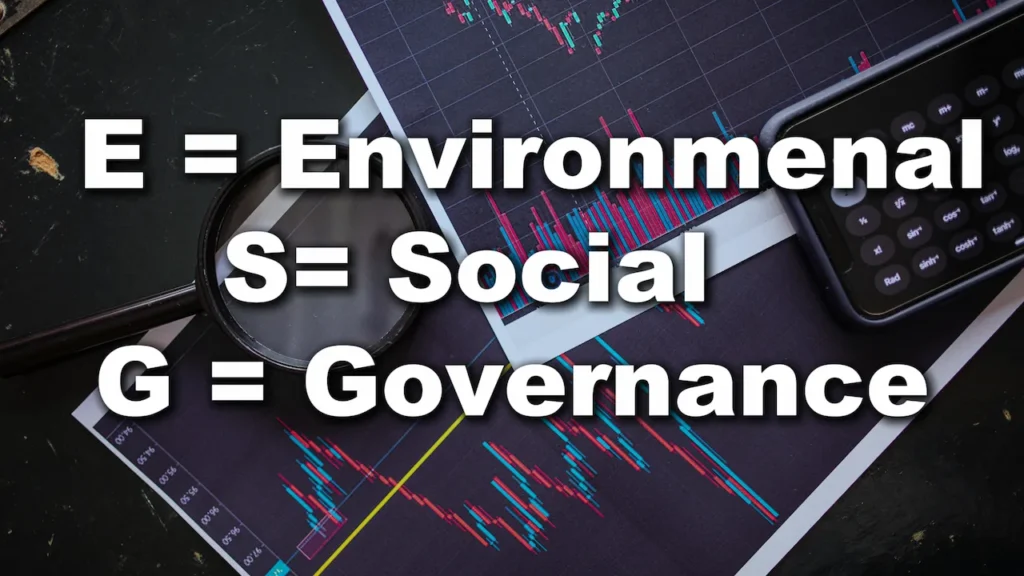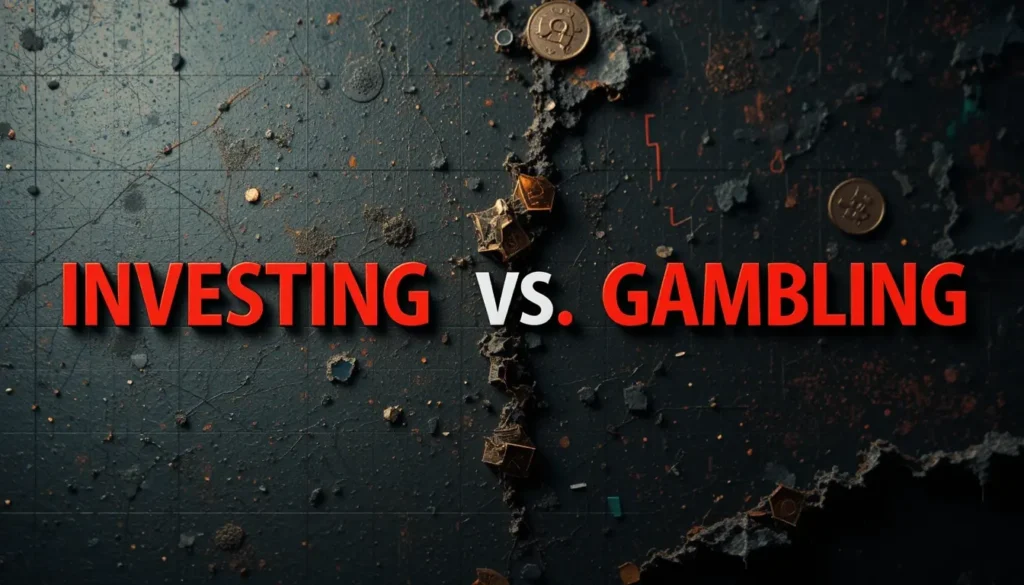A 2023 report revealed that over $30 trillion was invested in ESG assets globally—nearly one-third of all professionally managed assets.
Investors are not just chasing profits anymore. They are also seeking purpose. This shift has given rise to ESG stocks. These are companies evaluated not just by their financial performance but also by their impact on society and the environment.
What Does ESG Mean?
ESG stands for Environmental, Social, and Governance. These are three key criteria used to assess a company’s ethical impact. Environmental factors focus on how a company deals with climate change, pollution, or natural resources. Social criteria measure relationships with employees, suppliers, and the communities it operates in. Governance looks at issues such as executive pay, audits, internal controls, and shareholder rights.
An ESG stock is a share in a company that performs well in these areas. These companies are seen as responsible, transparent, and future-ready.
A growing number of investors refuse to support companies that harm the planet, exploit workers, or lack transparency. By 2025, ESG assets are projected to exceed $50 trillion, dominating global investment strategies.
In recent years, ESG investing has shifted from niche to mainstream. Big institutions, retirement funds, and individual investors are demanding accountability. This demand has pushed companies to improve their ESG practices. In response, many have adopted cleaner technologies, improved labor policies, and implemented ethical business practices.
The result is a new wave of stocks that not only deliver returns but also drive progress.
Why ESG Stocks Matter
Investors are realizing that ESG stocks are not just ethically sound—they are also financially strategic. Companies with strong ESG records are less likely to face lawsuits, regulatory fines, or public backlash. They also tend to be more innovative, better managed, and more resilient during crises.
This resilience translates into long-term financial stability. It lowers risk and builds trust.
Microsoft committed to becoming carbon negative by 2030—setting a benchmark for ESG leadership.
Microsoft was once seen as just a tech giant. Now, it is viewed as a sustainability leader. The company has shifted toward clean energy, implemented inclusive hiring, and increased transparency in governance. This evolution has made Microsoft one of the most favored ESG stocks globally.
This transformation wasn’t just moral. It was also profitable. The company’s stock has surged while attracting billions in ESG-focused investments.
Companies are evaluated by independent agencies such as MSCI, Sustainalytics, or Refinitiv. These agencies score businesses based on ESG-related risks and performance. A high ESG rating indicates strong ethical standards, environmental stewardship, and sound governance. A low score signals potential risks such as legal issues, pollution, or labor disputes.
ESG ratings can make or break a stock’s appeal to modern investors.
Investors use these scores to assess whether a stock aligns with their values and risk appetite.
ESG investing spans across every major sector—technology, finance, energy, healthcare, and more.
There’s no single industry that defines ESG stocks. Instead, ESG leaders exist across sectors. For example:
- Technology: Apple and Adobe have scored high on supply chain ethics and environmental transparency.
- Finance: Mastercard has shown leadership in data security, employee inclusion, and governance.
- Energy: Ørsted transitioned from fossil fuels to renewable energy, becoming a global leader in offshore wind.
- Healthcare: Johnson & Johnson is known for strong governance and product safety protocols.
These examples show that ESG is not a niche—it’s a standard that all sectors can aim for.
Performance of ESG Stocks
Over a 10-year period, ESG-focused funds have matched or outperformed traditional funds across major global markets.
Many believe that ESG investing means sacrificing returns. The numbers prove otherwise. Numerous studies show ESG funds performing as well as or better than conventional ones. Companies with strong ESG practices tend to manage risks better. They also attract talent, improve brand loyalty, and secure long-term growth.
In downturns, ESG stocks have also shown greater stability. This performance has shattered the myth that ethics come at the cost of earnings.
Over 70% of institutional investors use ESG screening to eliminate risky investments.
Investors use different methods to select ESG stocks. The most common are:
- Positive Screening: Choosing companies with the best ESG practices.
- Negative Screening: Excluding sectors such as tobacco, oil, or firearms.
- Thematic Investing: Focusing on themes like clean energy or gender equality.
- Impact Investing: Targeting companies that generate measurable social or environmental impact.
Each approach allows investors to align their portfolio with their values.
Harvard research found that firms with strong ESG practices had 4.8% higher operating performance over a 15-year period.
Studies consistently show that ESG-oriented firms outperform peers in efficiency, brand reputation, and regulatory compliance. For example, companies with strong governance are less likely to engage in fraud. Firms with high environmental standards reduce operational costs by minimizing waste and using sustainable materials.
This edge has encouraged investors to treat ESG as a core strategy rather than a moral afterthought.
In 2023, the SEC proposed new rules requiring ESG disclosures for publicly traded companies.
Governments and regulators are stepping in to ensure that ESG claims are genuine. Without oversight, companies could mislead investors with vague or false promises—a practice called “greenwashing.” New regulations aim to standardize ESG reporting. This creates transparency and builds investor confidence.
As ESG becomes a global standard, proper reporting will separate true performers from pretenders.
How to Start Investing in ESG Stocks
Retail investing platforms now offer specialized ESG screeners, indexes, and ETFs.
Getting started with ESG investing is easier than ever. Many brokers provide ESG filters that allow users to select companies based on their values. ESG Exchange-Traded Funds (ETFs) group top-performing ethical companies into one investment. These funds offer diversity and simplicity.
Some of the popular ESG ETFs include:
- iShares MSCI USA ESG Select ETF (SUSA)
- Vanguard ESG U.S. Stock ETF (ESGV)
- SPDR S&P 500 ESG ETF (EFIV)
These products are ideal for those seeking both ethics and efficiency.
Millennials and Gen Z are driving the demand—over 75% of them prefer to invest based on ESG criteria.
Young investors are shifting the priorities of the investment world. They care deeply about climate change, human rights, and diversity. Their financial choices reflect those values. As they inherit wealth and grow their income, their preferences are shaping markets.
This generational change is not a trend—it’s a transformation.
The ESG movement is gaining momentum. Technological tools are improving how we measure ethical performance. Policies are evolving to hold companies accountable. As transparency increases, trust will grow. And as trust grows, so will investment.
Companies that resist ESG will fall behind. Those that lead will thrive.
Despite popularity, ESG investing isn’t risk-free—it can still face market, political, or sector-specific challenges.
Not all ESG-labeled stocks live up to expectations. Some companies exaggerate their impact. Others may get downgraded due to new controversies or governance failures. ESG metrics can also vary by rating agency, making comparisons inconsistent.
Investors need to research carefully and monitor ongoing performance. ESG is a long-term journey, not a static badge.
ESG stocks are shaping the future of investment by proving that doing good is also good business.
They reflect a fundamental change in how investors think about money, value, and impact. ESG stocks are not just an option—they’re becoming a necessity. They blend purpose and performance, ethics and earnings.
Investing in ESG is a statement. It says that profits matter—but people and the planet matter, too.




